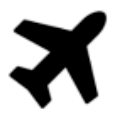Pilot Information Center
The foremost technical resources available to AOPA Members. The Pilot Information Center strives to maintain the highest standards of professionalism and technical expertise.
Our skilled group of pilots, medical certification specialists, and flight instructors:

30,000+
aviation related questions answered annually

80,000+ Hours
of collective flight experience
25,000+
medical questions answered annually
Contact our specialists
The Pilot Information Center Staff is here to make your experience a truly great one. We answer questions about:
Pilot and aviation-related topics
- Airports issues, airspace
- Legislative updates
- FAA regulations
- Flight training, CFI questions
Aircraft ownership
- Buying and selling process
- Aircraft valuations
- Flying clubs, co-ownership
- Maintenance
Medical certification
- The airman medical certification process
- Allowed and disallowed medical conditions
- Medical application guidance
- Locations of medical examiners
- BasicMed
International flights
- Flight planning guidance for Canada, Bahamas, and Mexico, as well as Alaska
- U.S. border crossing procedures (Customs)
- Survival equipment recommendations and requirements









